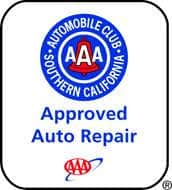If you’ve ever had an issue with your car’s transmission, you probably know how frustrating it can be as a vehicle owner. It’s hard to find an expert mechanic who knows how to fix transmissions, and even if you do, there’s no guarantee that he’ll be able to get your car back on the road.
But did you know that your car’s transmission could actually be the reason why it’s not running properly and having safety issues? And that it could also shorten its life expectancy?
In this article, we’re going to explain exactly what a transmission is, how it works, and how it affects your car’s lifespan.
What Is A Transmission?
Transmission is basically a device that allows your engine to turn into mechanical energy so that it can move forward or backward in order for your vehicle to travel. The most common type of transmission found in cars today are automatic ones, but manual transmissions have been around since the beginning of time.
The first internal combustion engines were built by Nikolaus Otto in 1876, and they used a simple gear system called “mechanical” gears. This was later replaced by hydraulic clutches and flywheels, then finally hydraulically actuated torque converters. Today, almost all modern vehicles use some form of automatic transmission.
How Does A Transmission Work?
When you press down on the gas pedal, the accelerator sends signals to the engine through the throttle body. These signals tell the engine when to start working, as well as how much power should go out from each cylinder. When the engine starts up, it turns into kinetic energy and converts it into rotational motion.
This rotation causes the crankshaft to spin at high speeds, which eventually spins the wheels via the differential mechanism. As long as the engine keeps turning, the transmission will keep sending these signals until the driver releases his foot off the brake pedal. Once the brakes take over, the engine stops spinning, and the transmission has to stop too because it needs to store the energy generated during acceleration.
This process happens every single time you accelerate your car, whether you want to or not. But sometimes things don’t work as they should, and the result is something known as “usual transmission issues.” If you notice any unusual noises coming from your car while driving, chances are good that one of them might be caused by a faulty transmission.
Why Do Cars Need To Have Automatic Transmissions?
Automatic transmissions allow drivers to shift gears without having to manually change their position in the seat. They make driving easier, especially for people who aren’t very familiar with shifting gears themselves. However, they come with several disadvantages:
They require more maintenance than manual transmissions. Because they need regular oil changes, fluid flushes, and other routine services, they cost about $1,000 per year compared to only $200-300 for a manual transmission.
They tend to wear faster than manuals due to higher friction levels. In fact, many experts believe that they cause premature failure.
Because they rely heavily on computerized systems, they may fail unexpectedly. For example, if the software malfunctions, the entire unit may shut down suddenly.
When Your Automotive Service Needs Involve Your Vehicle’s Transmission?
There are two main types of problems associated with transmissions: those related to the clutch itself, and those involving the actual components inside the transmission. Let’s look at both of them separately.
Clutch Issues
One of the biggest issues with clutches is overheating. Clutches are made of rubber, metal, and plastic materials, and they contain lots of moving parts. Overheated clutches become soft and lose grip strength, causing slippage between the clutch plates. The resulting loss of traction leads to damage to the drivetrain and ultimately to complete breakdowns.
Another common clutch problem involves worn springs. Springs help hold the clutch plate together so that it doesn’t slip. Worn springs weaken the connection between the plates, making it harder for them to stay connected. Eventually, the spring breaks, allowing the clutch to slip freely.
The third type of clutch malfunction occurs when the release bearing fails. This part helps disengage the clutch once the vehicle comes to a full stop. When it wears out, the clutch slips continuously, leading to further deterioration.
Other possible clutch issues include broken pins, damaged flywheel, and bad pressure plate. These all lead to similar results – the clutch becomes loose and starts slipping.
Inside the Transmission
As mentioned earlier, automatic transmissions use computers to control everything. That means that they have complex internal mechanisms that must operate flawlessly in order to function correctly. Any kind of mechanical error will affect these mechanisms, which then causes the whole system to break down.
Some of the most common transmission problems involve the following:
Faulty gearbox assembly. A defective gearbox assembly includes anything from a cracked bell housing to a leaking hydraulic line. All of these elements play important roles in transmitting power through the engine. If any one of them isn’t working as intended, the result is usually catastrophic.
Faulty torque converter or transfer case. Both of these devices work by converting rotational motion into linear movement. Malfunctioning units often cause excessive heat buildup, which eventually damages the bearings and seals. As a result, the fluid leaks out, leaving the device useless.
Damaged valve body. Valve bodies are responsible for regulating the flow of transmission fluid. They open and close valves based on signals sent from other areas within the transmission. In some cases, faulty valve bodies allow too much oil to leak out, while others don’t let enough go. Either way, the end result is the same – the transmission loses efficiency.
Damaged shift forks. Shift forks are used to move gears around during shifting operations. Because they’re located directly under the driver’s feet, they take quite a beating over time. Faulty shift forks may bend or crack, preventing proper operation.
Overloaded driveshaft. Driveshafts connect the front wheels to the rear axle. They transmit rotation from the crankshaft to the differential via pinion teeth. If the shaft gets overloaded due to heavy loads, it won’t rotate smoothly. Instead, it tends to vibrate excessively, creating noise and wear.
Malfunctioning sensors. Sensors monitor various aspects of the transmission, including temperature levels, oil pressures, and more. The information gathered by these components is transmitted to the computer, where it’s processed before being displayed on the dashboard. Some malfunctions occur because of poor wiring connections, while others happen because of physical damage.
Malfunctioning solenoids. Solenoid-based systems regulate many different functions inside the transmission. When something goes wrong, the resulting malfunction prevents the correct functioning of the entire unit. This leads to overheating, loss of lubrication, and ultimately failure.
The good news is that transmission repair doesn’t necessarily mean replacing the entire thing. You might only need to replace certain parts such as the filter, pump, or sensor. However, when you choose to perform repairs yourself, make sure you follow the manufacturer’s instructions carefully. Otherwise, you risk damaging the rest of the transmission.
Transmission problems can cause serious damage to your car. If you notice any unusual noises coming from your car, it may be time to get it checked out by a professional mechanic, you should bring it to Davies Auto Care right away for transmission services and high-quality auto care. As a leading auto repair shop, our mechanics and service advisors will check it out and give you a free estimate on what repairs are needed. We also offer comprehensive auto services including preventative maintenance, brake repairs, automotive lubrication, emissions testing, tire installation, auto repair, engine repair, and other routine maintenance services Bring your car into Davies Auto Care today for top-notch affordable transmission repair and quality auto services!





